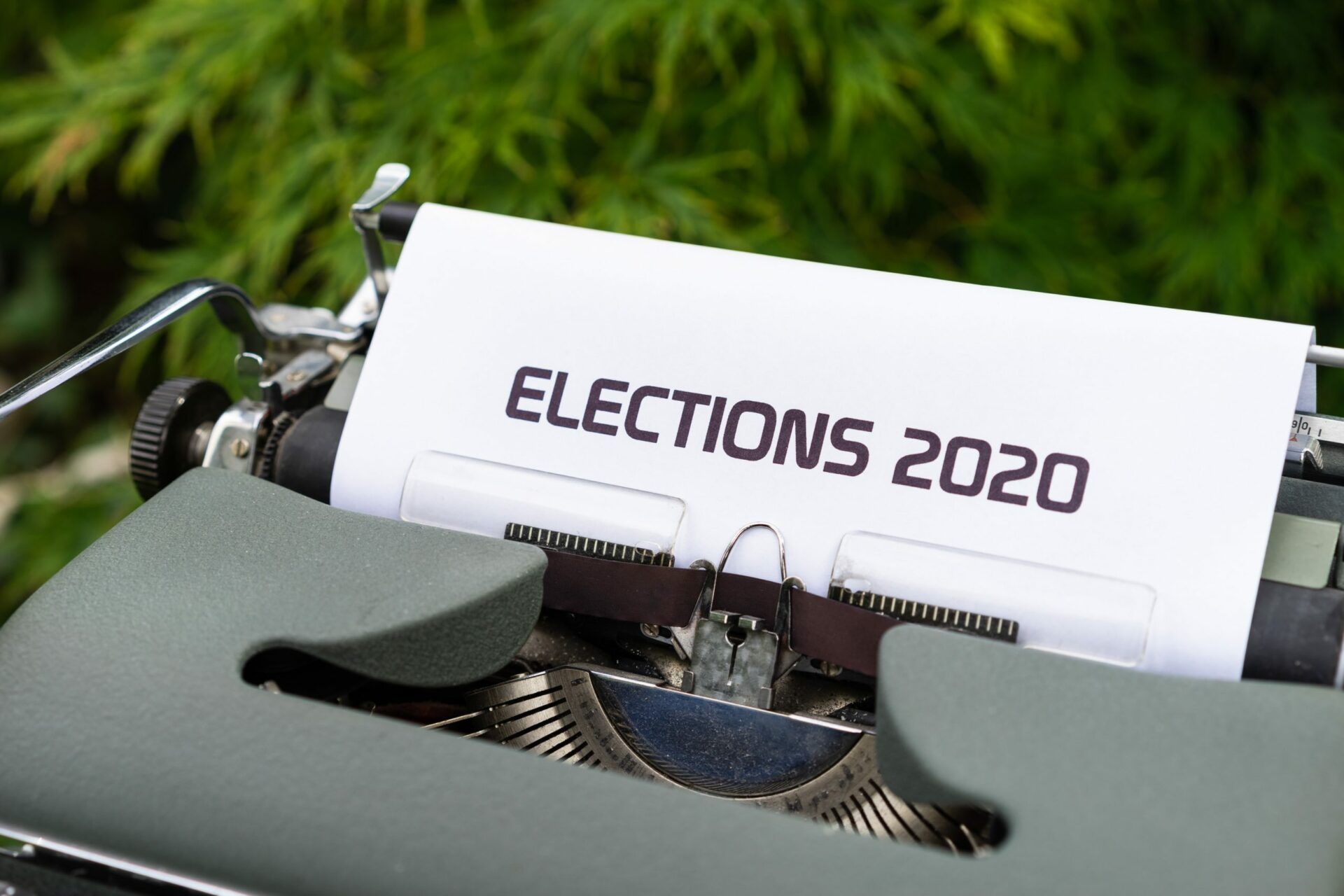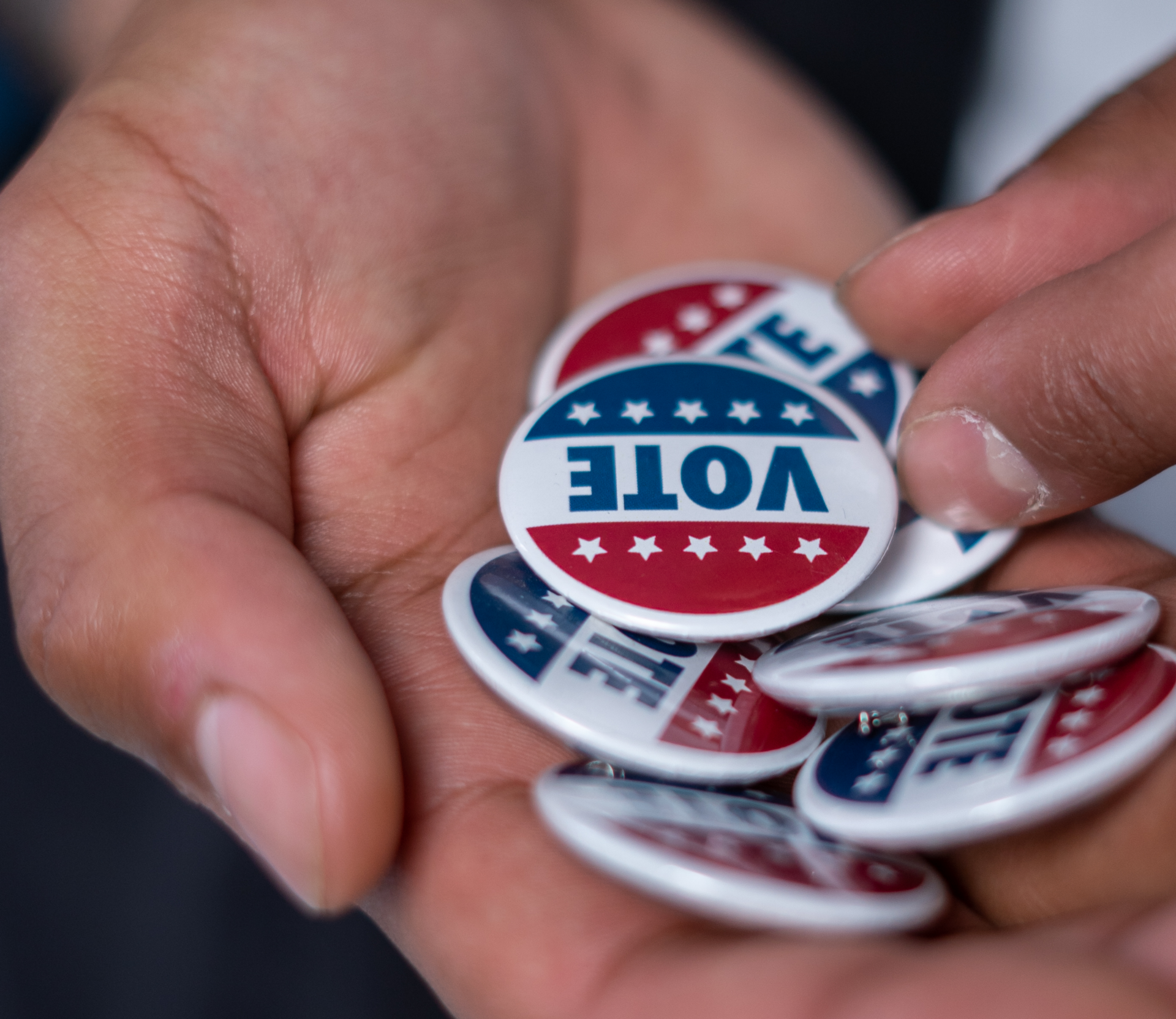2020 Elections – Prepare and Be Patient
Pandemics and protests. Wildfires, market crashes, and a recession. If someone ever tries to tell the story of 2020 on film, it will take more movies than Star Wars. At one point, we even had to worry about murder hornets. Murder hornets!
There’s no question this year has been a crazy one. But it’s about to get even crazier – because a new presidential election is less than one week away.
Over the last few weeks, several clients have asked us what the election could mean for the markets. At a time when there is so much uncertainty to deal with, the thought of adding an election to the mix can seem overwhelming. So, we thought we’d write about how we should prepare for both the run-up and aftermath of the election. What exactly does the upcoming election mean for the markets?
Short-Term View: Prepare for Volatility
Uncertainty. That’s the keyword. Investors hate it, the year has been full of it, and the lead-up to a presidential election just brings more of it. As a result, the markets often see increased turbulence in the month before an election. For example, in October of the last four presidential election years, the markets fell.1
We don’t ever try to predict the future, but we should be especially prepared for volatility this year. That’s because there are still so many question marks surrounding our economy and the pandemic. For example, the pandemic is showing no signs of stopping, and indeed cases may climb again as winter sets in. The economy has improved, but is still on thin ice, with unemployment rates still stubbornly high. Investors are watching Congress with bated breath, waiting to see whether they’ll enact a new stimulus package. If not, that could spell trouble, as many economists believe more stimulus is needed for the economy to recover.
But there’s another reason why we should prepare for volatility: The possibility of delayed – or worse, disputed – election results.
Thanks to the pandemic, more people are likely to vote by mail than ever before. Mail ballots take longer to count than traditional ones, and some states “will count ballots that are delivered after the election if they are postmarked by a deadline.”2 Because election officials are more concerned with counting votes correctly than quickly, we may not have a winner declared for several days or even weeks. In fact, earlier this year, during primary season, several states needed more than a week before they could declare a winner.
Remember, uncertainty is the key word. Any delay may well cause more of it, which could trigger volatility. Then, too, some politicians have cast doubt over the very idea of mail ballots. If the losing candidate feels there is ground to contest the results, that could delay the process even further, leading to – you guessed it – more volatility.
We don’t have to look far back in history to see what the markets did the last time results were delayed. Remember the drama surrounding the 2000 election? On election night, Florida’s results were considered too close to call. Over the next month, Americans learned more than they ever wanted about things like dimpled chads and butterfly ballots. The S&P 500, meanwhile, dropped over 8% between election day and December 15 when the result was finally decided.3
Now, none of this is to say that pre- and post-election volatility is guaranteed. It’s not. We should, however, prepare ourselves for it. Because the more mentally prepared we are to weather short-term uncertainty, the better equipped we are to remember…
The Long-Term View: Patience Over Politics
Every four years, we hear people say, “If the Democrats/Republicans win, we’re going to sell (or buy) because that means the markets will fall (or rise).” It is understandable why people think this way. After all, politics play an increasingly large role in our daily lives. Why wouldn’t they impact our portfolio, too? But the truth is, presidential elections are relatively unimportant when it comes to the markets, at least in the long-term. A quick look at history bears this out.
Historically, the S&P 500 has gone up 10.8% under Democratic presidents and 5.6% under Republican presidents.4 That’s not a large difference and can be attributed to a whole range of factors besides politics. Either way, the markets tend to go up over time.
One thing we’ve noted in recent years is that as elections get more partisan, so too does the rhetoric about how the candidates will impact the markets. For example, here’s the opening sentence from a CNBC article published on November 3, 2016, shortly before the election:
Wall Street’s long-running view that Hillary Clinton would easily become the next president has been replaced by a new fear that Donald Trump could win, and it probably won’t be a pretty picture for stocks if he does.5
Here’s a snippet from an article in the New York Post written a few months before Barack Obama was first elected:
…it’s hard to see how a President Obama would be good for Wall Street. He wants to raise the capital-gains tax…[which] would be great for the tax-shelter business, but stocks would tank…in other words, the markets could fall further from their already-beaten down levels once the street begins to focus on an Obama presidency.6
Both these predictions ended up being wide of the mark. In the first year of President Obama’s presidency, the markets rose 23.45%.6 In President Trump’s first year, the markets gained 19.42%.7 Doom and gloom is predicted more and more with each election and yet the markets keep going up over time.
This is exactly why we are long-term investors. As the saying goes, it’s not about timing the market. It’s about time in the market. This is why making investment decisions based on politics just doesn’t make sense. As you already know, emotional decision-making has no place when it comes to investing. But few things prompt as much emotion as politics. That’s why it’s crucial that we keep politics out of your portfolio.
It’s true that Trump and Biden have different economic policies, and some of their policies will affect the markets to a degree. But the markets are like the world’s most complicated cake recipe, and the president is just one relatively minor ingredient. Far more important are supply and demand, innovation and invention, mergers and acquisitions, the ebb and tide of trade, and a host of other economic developments both large and small. Making major investment decisions based on politics would be like carefully measuring how much chocolate goes into your cake while ignoring the amount of sugar, flour, and eggs.
So, what does the election mean for the markets? In the short-term, potentially a lot. In the long term, probably not much.
2020 has been a long, crazy year. It’s possible the next few months could be even crazier. But in the grand scheme of things, they are still just a few months, and this is still just one year. We’ll be investing long after Trump and Biden are both names in the history books.
In the meantime, our team is here for you to answer your questions. Please let us know if we can be of service. Be well, stay safe, and enjoy the rest of your year!
SOURCES:
1 “S&P 500 Historical Prices,” The Wall Street Journal, https://www.wsj.com/market-data/quotes/index/SPX/historical-prices
2 “When Will We Know the 2020 Presidential Election Results? A Guide to Possible Delays,” The Wall Street Journal, https://www.wsj.com/articles/will-we-know-who-is-elected-president-on-election-night-a-guide-to-possible-delays-11596629410
3 “Why stock market investors are starting to freak out about the 2020 election,” MarketWatch. https://www.marketwatch.com/story/why-stock-market-investors-are-starting-to-freak-out-about-the-2020-election-11600964863
4 “Democratic presidents are better for the stock market and economy than Republicans, one study shows,” Business Insider. https://markets.businessinsider.com/news/stocks/stock-market-election-democratic-republican-presidents-better-performance-economy-gdp-2020-8-1029528932#
5 “This is what could happen not the stock market if Donald Trump wins,” CNBC. https://www.cnbc.com/2016/11/02/this-is-what-could-happen-to-the-stock-market-if-donald-trump-wins.html
6 “Wall St. Death Wish,” The New York Post. https://nypost.com/2008/08/04/wall-st-death-wish/
7 “S&P 500 Historical Annual Returns,” Macrotrends, https://www.macrotrends.net/2526/sp-500-historical-annual-returns

